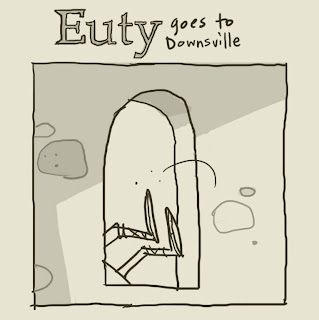Ah, another week, another post chock full of links from the narrow sector of the world wide that I like to call the blogosphere.
I thought I’d get a little bit geographically specific with this little link edition. Just to give you an idea of the spread of blogs that I read (that you should too). This is by no means comprehensive – but here are some of the homes of regular commenters, people I know, and people I reckon you should discover (along with some choice posts from their sites).
Right-o. Lets go.
Starting with those in my own neck of the woods – the Townsville scene… (in no particular order).
- Tim – doesn’t post often and when he does it’s usually a YouTube video.
- Leah – is the Andrew Bolt of the North Queensland Christian blogosphere, or perhaps the Tim Blair. She also covered North Queensland’s lost and found saga this week where a local lad from a local church went missing in the bush, and was found a couple of days later.
- Stuss – has picked up the pace a little, though most of what she’s saying is about gardening and decluttering. Which is fine. Because both are good things.
- Phoebe – hasn’t really said anything for 21 days. I just counted. But no list of bloggers from Townsville would be complete without her.
- Joel – if Leah is the Tim Blair of the Townsville blogosphere then Joel is the Piers Ackerman.
- Carly – is an education student and gives some interesting insight into the female psyche with pieces like the one she wrote last week about Oprah.
- Chris barely posts enough to rank a mention. But he’s a blogger. In Townsville. So he sneaks in.
If you’re in Townsville, and I’ve missed you, let me know in the comments.
Moving south, here are some of the notables in Brisbane…
- Kutz – I mentioned his new endeavour last week. It’s been trickling along. I’m sure more comments from nice friendly readers would keep his motivation levels up.
- Tim and Amy – The same could be said for these two. They’ve kept a pretty steady pace and you should go over, read what they have to say, and say hello.
- Simone – well, I’ve talked about her blog enough for you to know what goes down over there. She gets a prize for being the third blogger to mention my dad* this week. Her little piece of speculation about narrative in the new creation was interesting enough to get my hippocampus firing today.
- Will Henderson – gets the prize for being the first to mention dad*, and also for being the first Acts 29 affiliated church planter in Australia – a story that apparently hadn’t received all that much coverage before I mentioned it the other day (based on some posts like this one from Jeff Attack)… check out the website for his upcoming plant. Unfortunately it’s a bit grungy. And we all know how I feel about grunge.
Now, on to Sydney. The city of my birth and home of many good blogs.
- Izaac is back from a holiday and taking on the challenge of posting about Christian love and social justice.
- Ben celebrated his birthday yesterday – and I promised him a link. Then he posted a story about how the Governator has the Conan sword in his office – that I was all set to feature in my next little string of “Curiosities” posts.
- At the fountainside Soph asks the important questions about train etiquette – something we’ll have to (re)familiarise ourselves with next year.
- Ben (of the Bathgate variety) lists five things that made him tough(er). I score one on his list.
- Dave Miers managed to scoop Mikey Lynch by posting an interview with Andrew Heard, one of the Geneva Church planting crew (another post on the network from Dave), before Mikey could wrap up his series of similar interviews with church planting figures (including Will Henderson and Al Stewart).
Mikey (from Tasmania) was also the second person to, somewhat vicariously, mention dad this week because his name came up in one of the posts from the aforementioned series of interviews.
It has also become apparent – from what Andrew Heard said on Dave’s blog and what Al Stewart said on Mikey’s – that the Geneva portmanteau was only a vicious rumour, and that the name is actually a reference to Calvin’s work in that city. Which is a good thing.
And to conclude, here are my favourite ten posts from my blog this week (including bits from Robyn and Benny).
- Benny on Ministry
- Robyn on Grammar (PS – you should all encourage Robyn to blog more – she needs some comment love…)
- Good bad haircuts
- Bad relevance
- How to pick a cafe
- Cool stuff to do with your photos/iPhone
- Tips from a guru (my dad – since he’s the flavour of the blogosphere these days…*)
- The one about being wrong.
- The one about yawning.
- The one about being a PK, and the follow up about being a PK being a bit like being Harry Potter.
* I should point out that these constant mentions of dad being mentioned are a mixture of patri-pride and because I think it’s slightly funny that he feels a sense of discomfort about being in the spotlight. It’s not because I think he’s super special (though he is). And if you want to join the fan club here’s the video I made for his 50th.







